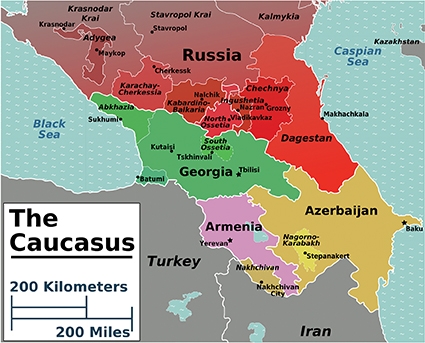Caucasus: Unstable Region & Global Outlook
Op-ed
What happens in Georgia’s neighborhood is very important for Tbilisi. Any changes in Turkey, Russia, Azerbaijan and other neighbors could have potential repercussions on how Georgia perceives foreign affairs. Yet while ordinary people and pundits in Georgia seem to understand this, if you compare the level of interest with what other neighboring countries do to study their neighbors, Georgia lags far behind.
It should therefore be an unchangeable imperative to monitor and analyze what is happening around Georgia to be better prepared for possible political, military and security developments in the region. And the region is quite unstable.
In neighboring Armenia and Azerbaijan, political changes may soon occur around “Nagorno-Karabakh,” as evidenced by the Armenian Foreign Minister’s statements that Yerevan is holding talks with Baku on returning some of the territories around “Nagorno-Karabakh”. It is far from clear whether the process will be peaceful, as Yerevan stated that if there is serious military escalation, the government will recognize “Nagorno-Karabakh’s” independence. In all cases, this is unlikely to usher in a more stable South Caucasus.
Further south, Iraqi Kurdistan will proceed with its plans to hold a referendum (at least at the time of writing) on separation from Baghdad. The referendum will be non-binding but, as seen from negative statements from Turkey, Iran, Baghdad itself and the world community, the results will not bring peace to the Middle East. This deeply matters to the South Caucasus, and Tbilisi in particular, as the states which have biggest stakes in the upcoming showdown are Turkey and Iran – Georgia’s neighbors (although Iran has no direct frontier with Georgia).
To the north, in Russia, on top of the dispute over the power-sharing agreement between Moscow and Kazan (capital of Tatarstan), several other problems have ensued. In July, Russian President Vladimir Putin visited the Republic of Mari El where he suggested that ethnic Russians were being forced to learn ethnic languages in regions with large minority groups. The sensitive language issue has sparked disputes not only in Tatarstan, but in several other so-called ethnic republics in the Volga-Ural area.
Furthermore, in August, Putin ordered federal prosecutors to check whether ethnic Russian students in the autonomous republics were being forced to learn the local languages.
As a result, on September 14, the Council of Chuvash Elders in the Republic of Chuvashia called Putin's moves "another attack against the indigenous languages of the Russian Federation." On September 16, at least 1,000 activists rallied in Bashkortostan's capital, Ufa, calling for the reintroduction of mandatory Bashkir classes in the republic.
I have already written how Moscow is hardening its control over the region and how this fits into the overall strategy on behalf of the Russian government ahead of the presidential elections and wider conflict with the West. But it was also noted that a serious backlash might also be seen from ethnic minorities, and those tiny protests in Chuvashia and elsewhere could be yet another signal that all is not right within the Russian provinces. Moreover, developments in Russia are deeply intertwined with its foreign policy and should be of primary concern for the Georgian policymakers to follow.
This also confirms the necessity of having a regional overview when we discuss Georgia’s foreign policy prospects. Indeed, on top of all the above-mentioned (potential) conflicts, Georgia itself is riven with separatist territories. Any escalation could lead to unintended military consequences. Perhaps the Turkish President Recep Tayyip Erdogan was right when he said several days ago at the UN General Assembly that small conflicts in Abkhazia, South Ossetia and Nagorno-Karabakh might be a cause for a bigger confrontation.
Thus, the unstable region Georgia is in requires a clear policy to navigate the various geopolitical currents. The region is evolving quickly and it requires certain ability to calculate the balance of power among the several major actors. Any failure to do so will be tantamount to the collapse of the foreign policy. This brings us back to the need to meticulously study our neighborhood in order to anticipate political, military and security trends in the region.
Emil Avdaliani teaches history and international relations at Tbilisi State University and Ilia State University. He has worked for various international consulting companies and currently publishes articles focused on military and political developments across the former Soviet space.
Emil Avdaliani












